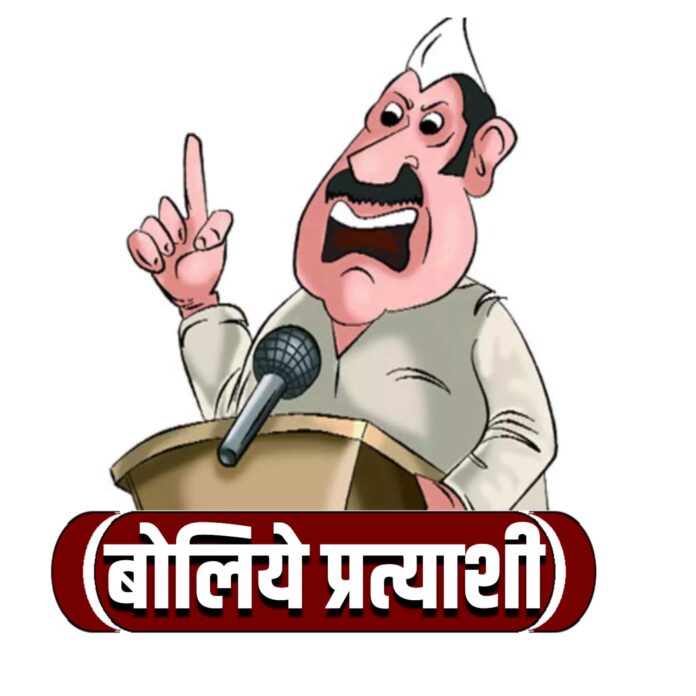- Mineral rich state’s political scene is currently marked by high stakes and intense rhetoric
- Thousands of Bangladeshi Muslims, Amit Shah claimed in July, had infiltrated Santhal Pargana, married Adivasi women and occupied land

Anant Tiwari
Ranchi : As Jharkhand braces for its Assembly elections at the end of December, a dramatic and contentious narrative has emerged, largely fueled by political actors from the Bharatiya Janata Party (BJP). At the heart of this controversy is the claim that thousands of Bangladeshi Muslims have infiltrated the Santhal Pargana region, married Adivasi women, and occupied tribal lands. This accusation, made by Union Home Minister Amit Shah in July, has sparked significant debate and agitation within the state. However, the veracity of these claims remains highly questionable.
Political Rhetoric and Allegations
In July, Amit Shah alleged that Santhal Pargana, a region in Jharkhand, had seen an influx of Bangladeshi Muslims who, according to him, had married Adivasi women and encroached upon tribal land. This assertion has been echoed by several prominent BJP leaders, including MP Nishikant Dubey, former Chief Ministers Babulal Marandi and Champai Soren, and Asha Lakra from the National Commission for Scheduled Tribes (NCST). The BJP’s aggressive campaign has framed these events under the banner of ‘love and land jihad,’ attempting to paint a picture of systematic demographic and territorial invasion.
Despite these sensational claims, the Government of India has consistently maintained that there is no concrete data on undocumented Bangladeshis residing in India. In fact, the Supreme Court was informed that it is impossible to accurately quantify the number of such individuals. This lack of evidence casts doubt on the BJP’s narrative, which continues to gain traction through relentless media propagation.
Ground Reality of Land Alienation
Jharkhand has long faced challenges related to land alienation, particularly affecting its Adivasi communities. The Chotanagpur Tenancy (CNT) Act of 1908 and the Santhal Pargana Tenancy (SPT) Act of 1949 were enacted to safeguard tribal land from being transferred to non-tribals. Despite these legal protections, large tracts of Adivasi land have been taken without proper consent. The actual perpetrators of this land alienation are not foreign infiltrators but rather a complex interplay of state actors and industrial interests.
Corruption, coercion, forgery, and manipulation of land records are common methods through which tribal land has been appropriated. Issues such as dubious ‘deeds of donation’ and informal transactions further complicate the situation. The BJP’s focus on alleged Bangladeshi infiltration diverts attention from these more pressing and concrete issues of land rights and corruption.
Scrutiny of the ‘Love Jihad’ Claims
The BJP’s narrative of ‘love jihad’ has been scrutinized and found wanting. Asha Lakra, a key figure in propagating these claims, mentioned specific instances of Adivasi women being married to Bangladeshi infiltrators. However, these claims have been debunked. Investigations reveal that some of the women cited had married Adivasi men, while others had married local Hindus. The so-called ‘evidence’ of forced marriages involving Muslims was largely fabricated or taken out of context.
A field survey conducted by the Jharkhand Janadhikar Mahasabha and the Loktantra Bachao Abhiyan in Sahibganj also contradicted the BJP’s narrative. The survey found no evidence of Bangladeshi infiltrators and confirmed that local couples, including those married to Muslims, had not been coerced. Instead, the survey highlighted widespread violations of the SPT Act and noted that police harassment was a more pressing issue.
Jharkhand Chief Minister Hemant Soren has dismissed the allegations of ‘love jihad’ as baseless. He points out that Jharkhand does not share an international border with Bangladesh, which raises questions about the logistics of any alleged infiltration. Despite this, BJP leaders Babulal Marandi and Champai Soren have continued to support and amplify these claims, contributing to an increasingly heated pre-election atmosphere.
Internal BJP Dynamics and Political Maneuvering
The BJP’s pre-election strategy has involved significant political maneuvering. Champai Soren, who briefly served as Chief Minister after Hemant Soren’s arrest on June 28, was not welcomed back by Soren upon his release. This incident, combined with the government’s recent controversial legislation, triggered a political crisis. Champai Soren’s alleged attempt to switch allegiance to the BJP was seen as a major threat to Hemant Soren’s leadership.
Faced with this challenge, Hemant Soren swiftly acted to counter the potential defection. He instructed Champai Soren to resign from his post, a move that was seen as both a tactical and symbolic gesture to solidify his own position. Champai Soren’s subsequent decision to join the BJP, motivated by personal and political grievances, was intended to bolster the BJP’s prospects in Jharkhand.
Impact of Champai Soren’s Defection
Champai Soren’s switch to the BJP was expected to be a game-changer, potentially enhancing the party’s position in the Kolhan region, which had been a stronghold for the JMM. However, the impact has been underwhelming. The BJP’s efforts to leverage Soren’s defection have not translated into significant political gains. Despite hopes of capturing 8-9 seats in the Kolhan region, the BJP has struggled to make inroads. Soren’s defection has not led to a mass exodus of JMM legislators, and the BJP’s performance in the region remains lackluster.
The Kolhan region, which elects 14 MLAs to the state assembly, saw the JMM win 12 seats in the last election. Champai Soren’s previous defeat in the 2019 Lok Sabha elections, where he lost to the BJP by a substantial margin, further underscores the limited impact of his political switch. The BJP’s struggles in the region are compounded by internal dissent and the presence of formidable local leaders like Arjun Munda and Raghubar Das.
The Broader Political Scenario
The BJP’s pre-poll campaign in Jharkhand reflects broader national trends, where the party has employed polarizing strategies to galvanize support. The ‘love jihad’ narrative, while controversial, is part of a larger strategy to mobilize certain voter bases by stoking fears and uncertainties. However, this approach has faced significant pushback from local communities and political analysts who question the legitimacy of these claims.
As Jharkhand heads towards its Assembly elections, the focus on ‘love jihad’ and land issues illustrates the volatile and contentious nature of the state’s political landscape. With both the BJP and opposition parties engaging in strategic maneuvering, the elections are shaping up to be a fiercely contested battle. The BJP’s attempt to leverage sensational allegations and internal defections highlights the party’s desperation to shift the electoral dynamics in its favor.
Jharkhand’s political scene is currently marked by high stakes and intense rhetoric. The BJP’s allegations of ‘love jihad’ and land invasion, while generating considerable media attention, lack substantiation and divert focus from the real issues affecting the state’s Adivasi communities. The unfolding political drama, including Champai Soren’s defection and the BJP’s strategic maneuvering, underscores the complexity of Jharkhand’s electoral politics.
As the state prepares for its Assembly elections, the implications of these developments will be closely watched. The ability of the BJP and other parties to navigate the shifting political landscape will be crucial in determining the outcome of the elections and the future trajectory of Jharkhand’s governance.


